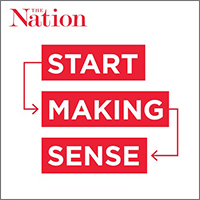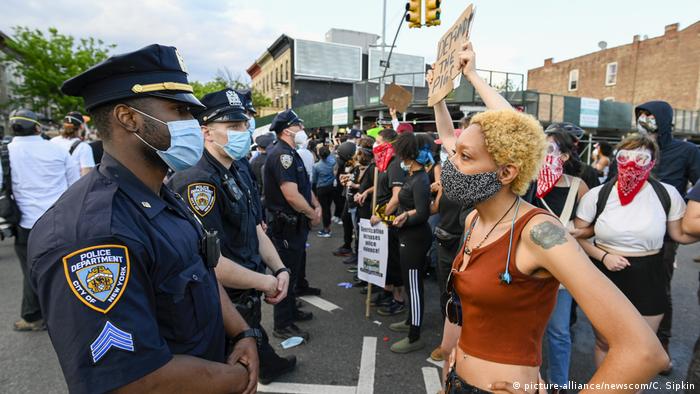 Listen HERE
Listen HERE
Democrats in Congress have introduced legislation to reform police practices nationwide and hold bad cops responsible—while LA has spent decades trying to reform its police force. Jody Armour comments—he’s the Roy P. Crocker Professor of Law at the University of Southern California, and speaks widely on Black Lives Matter and the movement’s agenda. His book N*gga Theory: Race, Language, Unequal Justice, and the Law will be published in August.
Also: Trump’s disastrous walk across Lafayette Square for that bible photo-op outside St. John’s Episcopal Church apparently was Ivanka’s idea—she’s also been tweeting Bible verses. Amy Wilentz, our Chief Ivanka Correspondent, has a report. 6-10-2020
It’s not About Trump: Dahlia Lithwick; America in Revolt: Elie Mystal; Criterion Channel TV: Ella Taylor
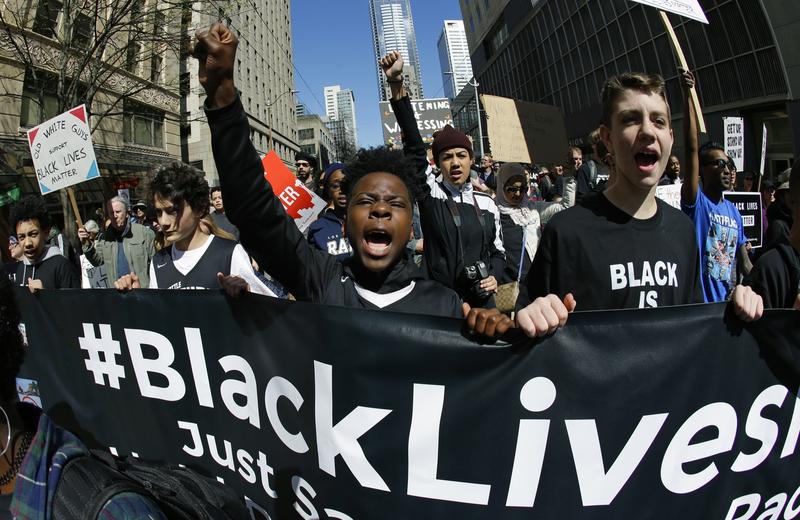 Listen HERE
Listen HERE
“The best thing about the protests during the last few weeks is that they are NOT about Donald Trump,” says Dahlia Lithwick, “they are about us.” She writes about courts and the law for Slate and she hosts the podcast “Amicus”.
Next up: Protests against police violence have been met with more police violence — and Democratic mayors in deep-blue states have failed to stop them — Elie Mystal comments.
Plus: The Criterion Collection has taken down its paywall for a series of films by black filmmakers — Ella Taylor has news you can use with criterion, virus-time TV watching. 6/11/2020
America in Revolt: Elie Mystal, plus John Nichols with Keith Ellison
 Listen HERE
Listen HERE
Across America, protests against police violence are met with more police violence. Elie Mystal talks about the failure of Democratic mayors in deep blue cities to stop their police forces from engaging in racist violence—especially Bill De Blasio in New York City. Elie is The Nation’s Justice correspondent, and writes the magazine’s “Objection!” column.
Also: John Nichols has been speaking with Minnesota’s attorney general Keith Ellison about what has been happening in Minneapolis, and what is to be done about unending police violence against people of color. 6-3-2020
The Protests, the Police, & the President: Harold Meyerson; “Reaganland”: Rick Perlstein; Virus-Time TV: Ella Taylor
 Listen HERE
Listen HERE
In almost all of our big cities we’ve seen massive protest against racist police violence after the murder of George Floyd by that Minneapolis cop — in almost every city the police response to protest against police violence has been more police violence. For comment we turn to Harold Meyerson of The American Prospect.
Next up, can Trump do what Nixon did with white backlash — when it comes to backlash, will America in 2020 be like America in 1968, or Reagan in 1980? We talk with Rick Perlstein, author of “Reaganland: America’s Right Turn 1976-1980” out in August of 2020.
Plus: Virus-time TV with Ella Taylor — this week, police procedurals with women detectives: starting with the Netflix mini-series “Unbelievable”. 6/5/2020
Thinking Big about politics and the virus: Mike Davis, plus Christopher Shay on the crisis, and Amy Wilentz on Jared and Ivanka
 Listen HERE
Listen HERE
It’s time to think big about the coronavirus crisis and the 40 million workers who have lost their jobs—while the rest struggle to hold on to what they’ve got. Everything seems more fragile now, and the cruelty of the system has never been clearer. For some big thinking about where we need to go and how to get there, we turn—again—to Mike Davis.
Also: Christopher Shay talks about The Nation’s special issue on thinking big about the political requirements, and political opportunities, of this historic moment. He’s a senior editor at The Nation.
And we have a new episode of The Children’s Hour, stories about Ivanka, Jared, Don Jr. and little Eric, told by Amy Wilentz—today, Jared’s failed effort to procure PPE for FEMA, and some outrageous remarks from Don Jr. and Eric—while Ivanka celebrates “exciting platforms the private sector has created to upskill our workforce!” (her exclamation point). 5/28/2020
Tara Reade vs. the Evidence: Katha Pollitt; “Shirley”: Ella Taylor; “Kochland”: Christopher Leonard
 Listen HERE
Listen HERE
Did Joe Biden sexually assault Tara Reade in 1993? Katha Pollitt examines the evidence—and concludes that it supports Biden’s denial. Especially significant: the PBS NewsHour interviews with 74 former Biden staffers, of whom 62 were women; none said they had experienced sexual harassment, assault or misconduct by Biden. All said they never heard any rumors or allegations of Biden engaging in sexual misconduct, until the recent assault allegation made by Tara Reade.
Also: Film critic Ella Taylor has news you can use — some recommendations about virus-time television. In particular: the new film “Shirley” starring Elisabeth Moss and novelist Shirley Jackson.
Also: Your Minnesota Moment: today, the secret history of the Koch Brothers: how the key to their empire, and their fortune, is a refinery south of St. Paul. Christopher Leonard has that story—his book is “Kochland.” 5/28/2020
How well do you know your L.A. history? Take our 1960s quiz (L.A. Times)
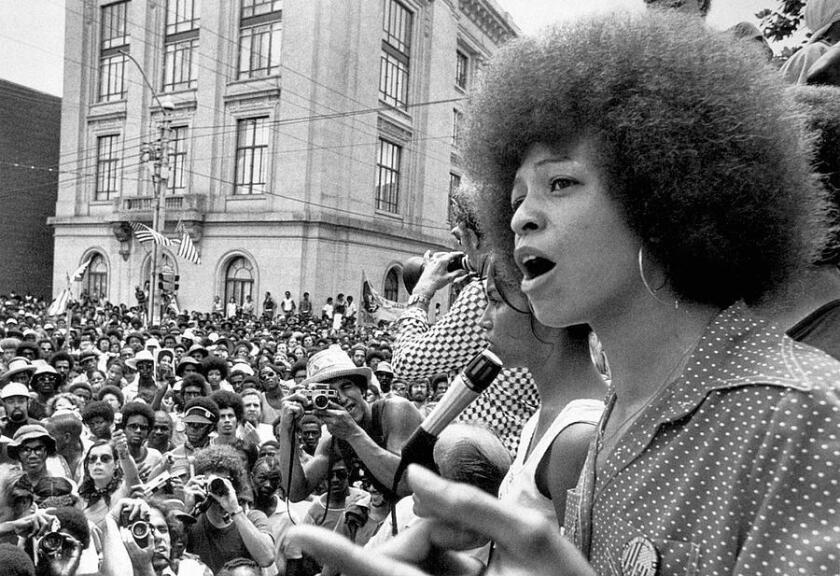
1. “Tanya” was:
A. Gidget’s best friend
B. a Rolling Stones song
C. the nom de guerre of Patty Hearst in the Symbionese Liberation Army
D. A legendary back-up singer for Ike and Tina
. . . continued at the LA Times HERE 5-24-2020
Does the Evidence Support Joe Biden, or Tara Reade? Katha Pollitt; plus John Powers on TV during the pandemic
 Listen HERE
Listen HERE
Did Joe Biden sexually assault Tara Reade in 1993? Katha Pollitt examines the evidence—and concludes that it supports Biden’s denial. Especially significant: the PBS NewsHour interviews with 74 former Biden staffers, of whom 62 were women; none said they had experienced sexual harassment, assault or misconduct by Biden. All said they never heard any rumors or allegations of Biden engaging in sexual misconduct, until the recent assault allegation made by Tara Reade.
What to watch, and read, while the stay-at-home orders are in effect: John Powers recommends “The Sleepers,” a Czech spy thriller, on HBO GO, and the 1950s Hollywood noir novels of the amazing Alfred Hayes, from New York Review Classics. John is Critic at Large on Fresh Air with Terry Gross on NPR. 5-21-2020
The Labor Movement After the Virus: Harold Meyerson, plus Greil Marcus on ‘The Great Gatsby’
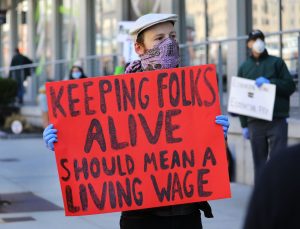 Listen HERE
Listen HERE
High unemployment usually hurts working class organizing–“except when it doesn’t,” Harold Meyerson says. He looks a the possible futures for the labor movement when the virus is finished. Harold is executive editor of The American Prospect.
Also: Greil Marcus has a new book out–it’s about The Great Gatsby and its place in American culture and American life–including on Saturday Night Live with Andy Kaufman. Greil of course has written many books, Starting with the classic “Mystery Train” and including “Lipstick Traces.” His new book is titled “Under the Red White and Blue: Patriotism, Disenchantment and the Stubborn Myth of The Great Gatsby.” 5-21-2020
LSE Live Online event: Mike Davis and Jon Wiener with Robin Kelley Discuss L.A. in the Sixties–and Today
 The London School of Economics Department of Sociology hosted a live discussion about “Set the Night on Fire: L.A. in the Sixties” on June 8: Mike Davis and Jon Wiener in conversation with Robin Kelley discussed the sixties’ movements in LA and their relevance today.
The London School of Economics Department of Sociology hosted a live discussion about “Set the Night on Fire: L.A. in the Sixties” on June 8: Mike Davis and Jon Wiener in conversation with Robin Kelley discussed the sixties’ movements in LA and their relevance today.
Click HERE to view the video.

